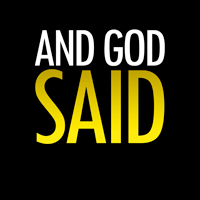
By Rabbi Jordie Gerson
A few weeks ago, I was listening to one of my favorite NPR shows, called OnBeing. Every few weeks on OnBeing, the show’s host, Krista Tippett, interviews theologians and religious leaders, physicists and poets, yogis and monastics, about meaning, faith, ethics and ideas.
And about a month ago, Tippet interviewed a poet named Marie Howe. Howe, who comes from a very traditional Irish Catholic background is an acclaimed poet who often writes about spirituality, and faith. And in their conversation, Howe explained why, poetry, for her, is magical. This is what she said:
“Well, poetry holds…what can’t be said…It has the quality of a spell…” And Krista Tippett said, “Yes, it’s making magic with words.”
And then Marie Howe said something surprising, and, I thought stunning: “For many of us, language is almost all we have left of action in the modern world. I mean unless we’re in Syria, you know, or we’re in Iraq. But for many of us, action has become what we say. The moral life is lived out in what we say more often than what we do.”
I was struck by this statement for so many reasons, but especially because it captures an essential of Kabbalistic thought: that we speak the world into being, that we create the world through language.
Let’s look at this week’s Torah portion, a story most of you probably already know quite well. In it, God creates with words. In Genesis Chapter 1:3 we read: “And God said “Let there be light” and there was light…and God called the light day, and the darkness God called night.” Through language, the world is created. And On the second day, more of the same: (Gen 1:6) “And God said: ‘Let there be a firmament in the midst of the waters, and let it divide the waters from the waters…And God called the firmament heaven.” Language, we learn immediately, has the power to fashion worlds. As Rashi says, in a commentary on Genesis, “Everything [but humanity] was created by an act of speech. Only [we humans] were created/fashioned by the hands of God.” (1:27) Or, in the words of Midrashist and scholar Aviva Zornberg, “God’s word is all powerful: it constrains chaotic possibilities into…shape and posture.” (p. 18, The Beginning of Desire)
The Torah teaches us too, that we are made in the divine image. As a result, in the minds of the Rabbis, one of the mandates of our creation is that we emulate the one in whose image we were created. And so it is that we, like God, create reality by speaking it into being, by the stories we tell. It is as simple as pigeonholing one of our children as the ‘smart one’, and another as the ‘slacker’, as simple as waking up in the morning in a bad mood and telling ourselves (or our partners) “It’s going to be a lousy day.” Our language determines our lives. Marie Howe describes this creative power of speech as incantatory, even spell-like, words as magic, and she’s right: we create our moral realities, and our emotional reality, through language. As Jews, as big talkers, and as one of the most severely slandered peoples in history, we know this better than most. The speech we use about others – especially the gossip or LaShon HaRa, is a profoundly powerful way to create, destroy or reorder the world.
In the best-selling novel (and then movie) “The Help”, there is a famous scene in which Aibileen, the African-American housekeeper of one of the dysfunctional white families in the novel repeatedly tells a child she cares for, named Mae: “You is kind. You is smart. You is important.” Aibileen repeats this sentence to Mae over and over and over again, like a mantra, especially after the little girl has been hurt or ignored by her parents. It’s a moment that brought tears to almost everyone’s eyes who watched the movie.
But what are we all crying about? I think the answer is this: We all hope, deep down, that we are kind, smart and important, and that others see this. But so many of us need these words spoken, out loud, by others, to make them feel true. We, like the Kabbalists, need to have our worlds and lives spoken into being, need to have reality articulated, and thus created, for us. And so each word we use is a moral choice.
Language does have it’s limits. Even I, a writer, know that. But look at Malala Yousafzai, who spoke up for women’s education in Afghanistan and created a revolution. Look at Nelson Mandela, and his words against apartheid. Look at Martin Luther King, Jr. and his preaching on non-violence. Look at the Dalai Lama, and his insistence on compassion for the Chinese. Look at Yitzhak Rabin, and his words about peace. Words can change the world, if we know how to use them.
I want to close with the last few lines of a poem by Marie Howe. It’s called “The Meadow”:
Bedeviled human
your plight, in waking, is to choose from the words
that even now sleep on your tongue, and to know that tangled
among them and terribly new is the sentence
that could change your life.
May we remember, this Shabbat, that the world was once created by a single sentence. Let there be light. And that we can create a world with a single sentence. I love you. A single sentence. I’m sorry. A single sentence. You mean the world to me. A single sentence. And God saw that it was good, and it was good. Shabbat shalom.

Comment(1)
Leona Levy says
Thursday, January 21, 2016 at 3:47 pmI just found your sermons….How true!